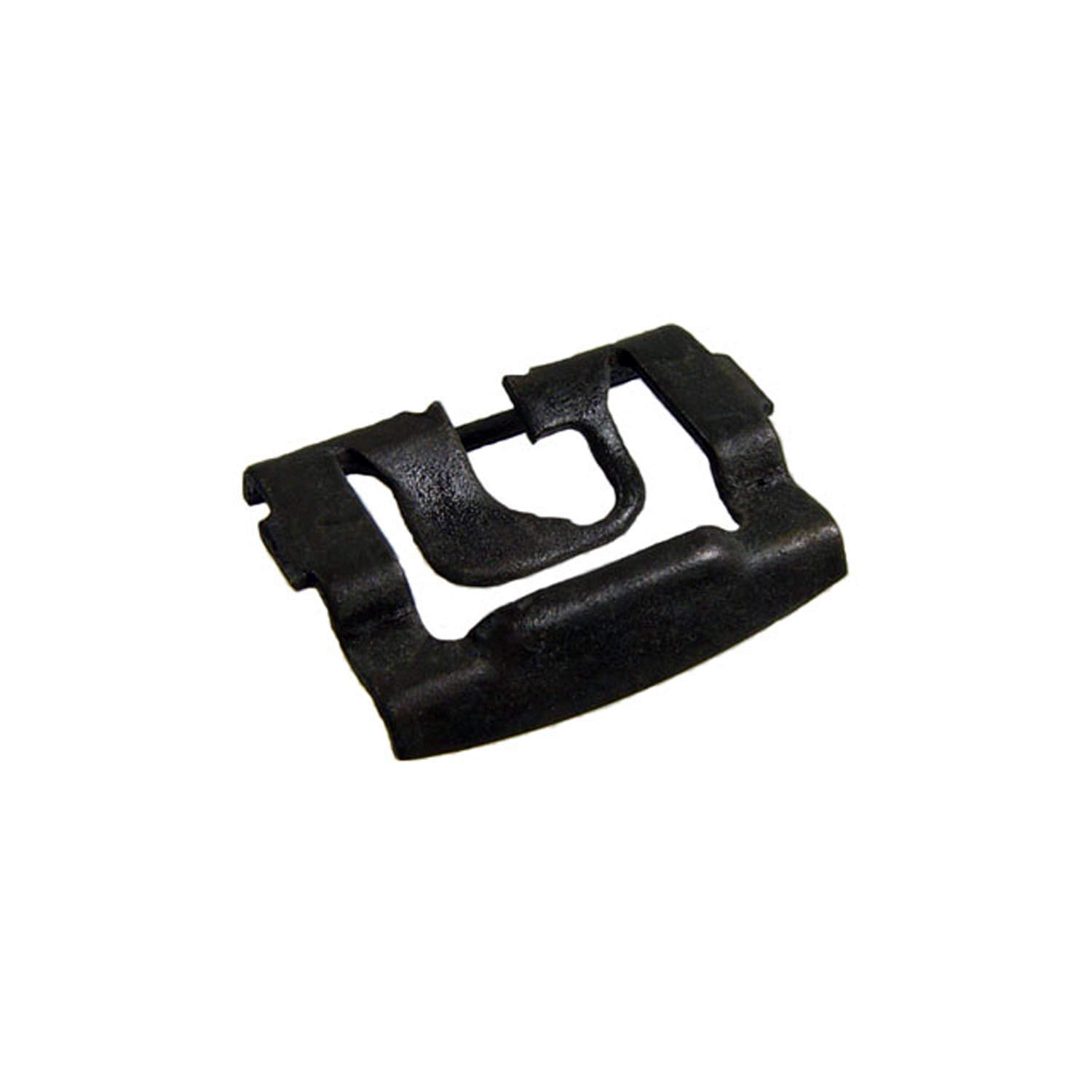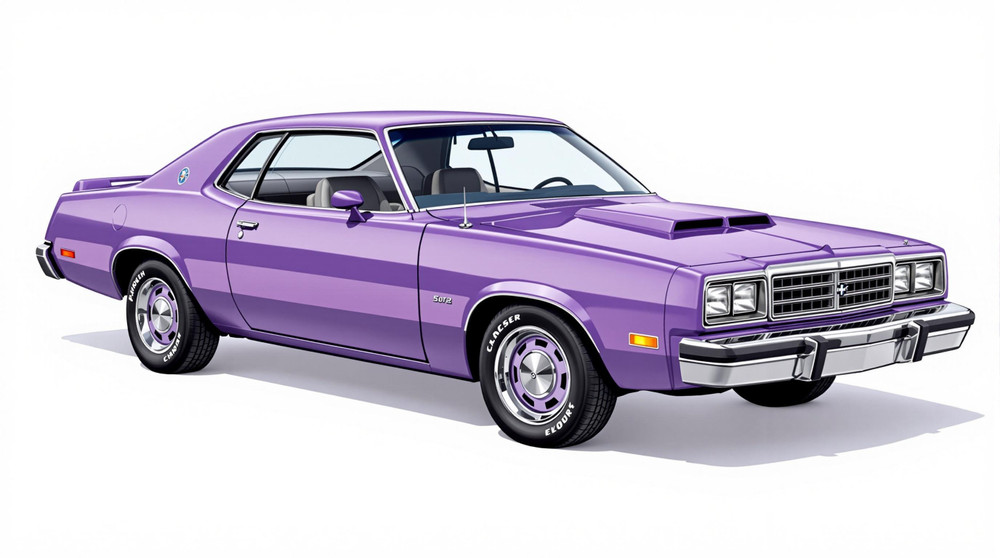Image of 1982 Plymouth Champ, Note: These illustrations use artistic license and may differ from actual historical models.
Performance Metrics
Fundamental Metrics
Emotional Appeal
MMP Rating
| Engine Specifications | |
|---|---|
| Engine: | 1.4L I4, 1.6L I4 |
| Displacement: | 1.4 - 1.6L |
| Horsepower: | 58-68 hp |
| Torque: | 70-85 lb-ft |
| Compression Ratio: | 8.5:1 |
| Ignition System: | Electronic |
| Cooling System: | Liquid-cooled |
| Performance Specifications | |
| 0-60 Time: | 14-16 seconds |
| 1/4 Mile Time: | 19-21 seconds |
| Top Speed: | 90-95 mph |
| Transmission and Drive | |
| Drive Type: | FWD |
| Transmission Type: | 4-speed manual, 3-speed automatic |
| Fuel and Efficiency | |
| Fuel System Type: | Carburetor |
| MPG: | 30-35 mpg |
| Dimensions and Brakes | |
| Brakes: | Front disc, rear drum |
| Wheelbase: | 93.7 inches |
| Weight: | 1,800-2,000 lbs |
Note: Specifications for classic cars are given to the best of our ability, considering the limited and variant data available.
Rediscovering the 1982 Plymouth Champ: A Compact Marvel
At the heart of the 1980s automotive landscape, a small but mighty contender emerged from the Plymouth lineup: the 1982 Plymouth Champ. This compact hatchback, a rebadged Mitsubishi Mirage sold under Chrysler's Plymouth division, offered a blend of economy and practicality that resonated with the budget-conscious driver of its era. With its roots tracing back to a partnership between Chrysler and Mitsubishi, the Champ was an early example of American and Japanese automotive collaboration. An intriguing piece of trivia that car enthusiasts might appreciate is that despite its modest appearance, the Champ was one of the first cars to introduce America to the concept of a "twin-stick" transmission, offering a unique driving experience.
Design and Innovation
The exterior of the 1982 Plymouth Champ was quintessentially '80s, with its boxy silhouette and angular lines. It featured pop-up headlights—a popular design trend of the time—and a simple yet functional layout that maximized interior space within its compact dimensions. Inside, passengers were greeted with an unpretentious cabin, where functionality trumped luxury. The materials used were durable and no-nonsense, reflecting the vehicle's economical intentions. Technologically, it boasted features like an optional "Twin-Stick" gearbox that allowed drivers to choose between power and economy modes—a forward-thinking innovation for fuel efficiency. Color options ranged from understated earth tones to brighter hues, with shades like "Bright Blue Metallic" catching buyers' eyes. The most iconic body style was undoubtedly the two-door hatchback, which balanced practicality with a touch of sportiness.
Historical Significance
The Plymouth Champ's introduction into the market marked a pivotal moment for American consumers who were increasingly turning towards smaller, more fuel-efficient vehicles in response to the energy crises of the 1970s. It stood out for its affordability and fuel economy at a time when these factors were becoming paramount in car-buying decisions. The Champ's legacy is not one of groundbreaking innovation but rather an early adopter and adapter of global automotive trends in the American market.
Performance and Handling
Performance-wise, the 1982 Plymouth Champ was not designed to set records but to reliably transport its occupants from point A to B. Its modest engine delivered adequate power for daily commuting, with top speeds and acceleration (0-60 mph) that were typical for economy cars of that era. Handling was straightforward and predictable; it wasn't built for high-speed cornering but provided a comfortable ride in urban settings. Drivers could expect a quiet engine hum rather than a roaring soundtrack, contributing to a calm driving experience.
Ownership Experience
The Champ served primarily as an economical daily driver but also found its way into car shows as a representation of '80s automotive culture. Its maintenance was relatively straightforward, making it accessible for DIY repairs—an appealing aspect for average owners looking for low-cost ownership. While reliability was generally good, some components like electronics might show their age today.
Fun Facts
A little-known fact about the Plymouth Champ is that it shared much of its DNA with Mitsubishi models not only in America but across different global markets under various names—showcasing its international appeal. While not known for breaking speed records or being owned by celebrities, it did carve out its niche as a dependable subcompact during its production run.
Collector's Information
Today, finding a 1982 Plymouth Champ can be somewhat rare due to its age and the tendency for older economy cars to be driven extensively and eventually scrapped. Production numbers weren't exceedingly high as it catered to a specific market segment. As for value range, well-preserved examples might fetch anywhere from $1,500 to $5,000 depending on condition and originality—though this is speculative given their scarcity in the collector's market.
Conclusion
The 1982 Plymouth Champ may not have been a headline-stealer in its day but has since earned recognition as an emblematic piece of '80s automotive history. It stands as a testament to an era when efficiency began steering American car design in new directions—a humble yet significant chapter in our motoring past.
1982 Plymouth Champ Catalog of Parts
 1982 Plymouth Champ Windshield and Rear Windshield Molding Clip. Made of steel-WF 216Windshield and Rear Windshield Molding Clip. Made of steel. 1-1/8" X 5/8". Each
1982 Plymouth Champ Windshield and Rear Windshield Molding Clip. Made of steel-WF 216Windshield and Rear Windshield Molding Clip. Made of steel. 1-1/8" X 5/8". EachWhy Choose Metro?
For over 100 years, Metro Moulded Parts has been the pinnacle of quality in classic car restoration parts. Our commitment to precision and authenticity in every component ensures a perfect fit and an OEM-level appearance.
- Expert Craftsmanship & Quality: Each part is a testament to our dedication to reliability and perfection, crafted from original designs and thoroughly tested.
- Advanced Technology: We use cutting-edge techniques to create flawless, long-lasting parts that surpass others in performance.
- SuperSoft Sponge – The Ultimate Door Seal: Not only are our door seals 30% softer than competitors', but they're also guaranteed to never leak. They effectively reduce wind and road noise, enhancing your classic car's comfort and driving experience.
- Proudly American: Our parts are a product of American craftsmanship, made in the USA with a spirit of excellence and heritage.
- Unrivaled Warranty: We back our products with a 30-year industry-leading warranty, a testament to our confidence in their quality.
Join us in preserving the legacy of classic cars with parts that are crafted for perfection, not just made.

